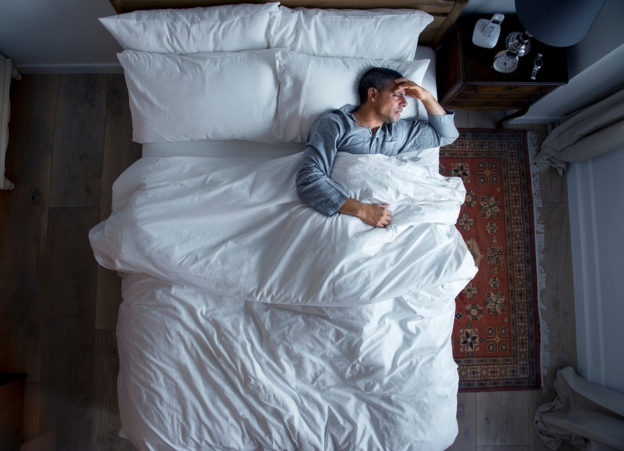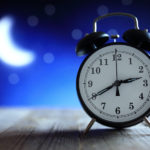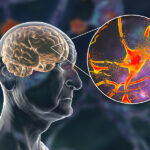By David Blyweiss, M.D., Advanced Natural Wellness
June 18, 2018
- Your circadian rhythm does a lot more than control your sleep/wake cycle
- Naturally restore your internal body clock for better health
- What does stress have to do with it?
There are some aspects of your health that you probably never give a second thought.
For example, when is the last time you considered your circadian rhythm?
Unless you’ve suffered from occasional jet-let or have a sleeping disorder, chances are good you’ve never given it any notice at all. And that could be a big mistake on your part.
Your circadian rhythm is basically a 24-hour internal time clock. And while you probably associate it with your body’s sleep/wake cycle, it has a significant impact on all sorts of body processes.
It regulates your blood pressure, heart rate, hormone levels and body temperature. It sets the pace for metabolic processes. It’s also what causes you to feel more alert at certain times of the day, and tired at others.
Open your arteries, improve blood flow for a new health miracle...
Did you know your circulatory system has over 60,000 miles of arteries, veins and other blood vessels, if stretched end to end?
But as you age, your blood vessels undergo changes, which may cause them to stiffen, thicken and get clogged.
GOOD NEWS! Doctors have now identified a “Miracle Molecule” inside your arteries that helps OPEN your arteries and IMPROVE blood flow.
It’s what Dr. Valentin Fuster calls it, "One of the most important discoveries in the history of cardiovascular medicine."To you, that means...
- Healthy blood pressure
- Sharper mind and memory
- Skyrocketing energy and muscular strength
- Increased pleasure and passion in the bedroom
- Improved circulation to every cell and organ in your body
Go here to discover a new natural way to significantly boost the levels of this miracle molecule in YOUR body NOW!
Your circadian rhythm can have an effect on your mental health as well.
When you experience disturbed circadian patterns – such as irregular patterns of rest and activity – it places you at a greater risk of depression, bipolar disorder and mood instability.
A disturbance in rest-activity patterns also makes you more prone to loneliness and increases levels of unhappiness. It can even result in slower reaction times.
So yes. It’s time to give some serious thought to your circadian rhythm. It matters… a lot!
Naturally Restore Your Internal Body Clock for Better Health
One of the best things you can do to restore a healthy circadian rhythm is to develop some hard and fast habits.
Set up a consistent daily routine. Set your alarm to wake up at the same time each day. Eat your meals at the same time… exercise at the same time… and go to sleep at the same time. The more consistency you can establish, the more adept your body will become in responding to it.
The World's Quickest Solution for Ending Prostate and Urinary Misery
This has recently been revealed to be one of the only real breakthroughs in prostate health.
The seeds of a strange fruit (sometimes called "Chinese Apples") hold powerful phytonutrients that are a revolution in prostate health.
In fact, UCLA and Veterans Administration research have now proved this to be true.
Not only that, but it may be the worlds quickest solution for ending prostate misery.
Simply stated, these phytonutrients represent a huge step beyond beta sitosterol, saw palmetto, and other phytosterols alone.
Simply click HERE if you want to have fast prostate relief...restful, uninterrupted sleep...no more constant "urges to go"...enhanced virility...and optimal prostate support for life.
It may take a few changes to make all of this happen, but you can do it.
Seek light when you wake up in the morning. Your body is meant to be active during daylight hours, and to rest and restore itself during the night. So when you wake up in the morning, expose yourself to sunlight as soon as possible.
Open the blinds and curtains. Sit outside while you sip on your tea or coffee. Enjoy breakfast on the patio. The sooner you seek light each day, the more effect it will have on your natural rhythm.
Place more focus on your eating patterns. Most folks skimp on breakfast, give only slightly more thought to lunch, then chow down at dinner time. This is just the opposite of what your body needs.
You don’t have to change the foods you eat. You just need to put them in their proper place. Eat breakfast like a king, lunch like a prince and dinner like a pauper. This is guaranteed to prime your internal body rhythm for the energetic demands of the day ahead of you… and help wind it down as night falls. Just make sure to eat your last meal of the day by 6 or 7 p.m.
Get your energetic activities out of the way during the day. Muscles have their own circadian rhythm, and data suggests that the best time for physical activity and exercise is during the daylight hours.
Research is mixed on whether morning or afternoon exercise has the greatest influence on your body clock. However, if you participate in regular training at the same time each day it will have a positive influence on your circadian rhythm.
The Influence of Stress on Your Circadian Rhythm
I also recommend taking a look at your cortisol levels. This is a hormone that is released in response to any stress you encounter on a day-to-day basis. And these days, stress levels seem to be higher than ever.
Well, cortisol is secreted in a daily rhythm under the influence of your circadian clock. It peaks in the morning, and then drops consistently throughout the day. Cortisol reaches its lowest point late in the evening… about the time you’re ready to go to sleep.
But if you are stressed or feeling burnt out, this rise and drop doesn’t work properly. During the day, cortisol levels don’t decline as much as they should. As a result, you may experience energy boosts in the afternoon and evening that prevent you from getting to sleep on time. Of course, all this does is disrupt your internal body clock even further.
An adaptogenic herb called ashwagandha may be able to help with this. It can naturally keep energized throughout the day while helping you sleep better at night. Additionally, ashwagandha reduces stress and anxiety levels that may be affecting your cortisol levels.
As an added benefit, this herb also appears to have a powerful effect on reducing depressive symptoms.
SOURCES:
Eckel-Mahan K, et al. Metabolism and the Circadian Clock Converge. Physiol Rev. 2013 Jan; 93(1): 107–135.
Lyall, Laura M et al. Association of disrupted circadian rhythmicity with mood disorders, subjective wellbeing, and cognitive function: a cross-sectional study of 91 105 participants from the UK Biobank. The Lancet Psychiatry. 2018. Published online first.
Peek CB, et al. Circadian Clock Interaction with HIF1α Mediates Oxygenic Metabolism and Anaerobic Glycolysis in Skeletal Muscle. Cell Metab. 2017 Jan 10;25(1):86-92.
Chtourou H, et al. The effect of training at a specific time of day: a review. J Strength Cond Res. 2012 Jul;26(7):1984-2005.
Pratte MA, et al. An alternative treatment for anxiety: a systematic review of human trial results reported for the Ayurvedic herb ashwagandha (Withania somnifera). J Altern Complement Med. 2014 Dec;20(12):901-8.
Chandrasekhar K, et al. A Prospective, Randomized Double-Blind, Placebo-Controlled Study of Safety and Efficacy of a High-Concentration Full-Spectrum Extract of Ashwagandha Root in Reducing Stress and Anxiety in Adults. Indian J Psychol Med. 2012 Jul-Sep; 34(3): 255–262.







